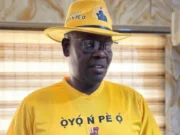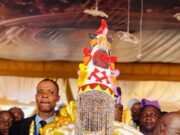The Constitution of Federal Republic of Nigeria has no provision for the dissolution of Local Government Councils. However, under the Local Government Law, 2001 (as amended) of Oyo State, section 10 provides that the Local Government Councilbecomes dissolved automatically at the expiration of a period of 3 years commencing from the date of the first sitting of the Council, which happens to be the length of the tenure of members of the Council. Fresh elections must then be conducted, which logically, should be some months before the expiration of the tenure of thecurrent Council, to avoid creating a vacuum and resist the temptation of appointing unelected persons to administer the Local Government.
Unfortunately, the opposite is panning out in Oyo State and in most States in Nigeria. At the expiration of the tenure of the erstwhile current council, the governor, rather than conduct elections at the appropriate time, appoints committees under the names of – caretaker committee, transition committee or administrators and they may remain in office for as long as the Governor pleases.
This is unconstitutional and illegal to say the least. Also, the Local Government Law, 2001 (as amended) of Oyo State on which the governor swore loyalty states clearly the methodologies concerning election and disbandment of members of the local government council. The act perpetrated by the governor is therefore tantamount to an unconstitutional act and indeed null and void. This stand has however been upheld in the famous judgement of the Supreme Court of Nigeria on the matter.
As regards to the Nigerian constitution, the Local Government Council is the third tier of government. It was established to promote development at the grass root level. Section 7(1) of the Constitution of the Federal Republic of Nigeria guarantees the existence of democratically elected Local Government Councils and mandates State Governments to ensure their existence under a law which provides for their establishment, structure, composition, finance and functions. Section 7(4) of the Constitution provides thatthe Government of a State shall ensure that every person who isentitled to vote or be voted for at an election to House of Assembly of a State, shall have the right to vote or be voted for at an election into a Local Government Council. Thus, a combination of section 7(1) and section 7(4) of the Constitution gives State Governments the power to conduct elections into and ensure that only elected Local Government Councils are in office. In Oyo State, elections into Local Government Councils are conducted by the State Independent Electoral Commission established under section 3 ofthe State Independent Electoral Commission Law 2000 of OyoState.
That the State Government has the power to make laws for the administration of Local Government Councils and conductelections into same, does not include powers to dissolve elected Councils before the expiration of their tenure. Local Government Councils can only be dissolved upon the expiration of their tenure as stipulated by law, and immediately replaced by newly elected members.
Unfortunately, in Nigeria, dissolution of elected Local Government Councils has become a norm. In May 2019, the Governor of the Oyo State dissolved the 33 elected Local Government Councils and 35 Local Council Development Areas in the State and replaced them with caretaker committees. This was done inspite of the fact that the apex court – Supreme Court of Nigeria had strongly condemned such act in similar cases such as the case of Governor Ekiti State & Ors v Olubunmo & Ors.
In 2019, the incumbent Governor of Oyo State – Engr. SeyiMakinde dissolved all elected 33 Local Government Councils and35 Local Council Development Areas in the State and replaced them with caretaker committees.Members of the Councils wereelected and sworn into office in May 2018.To stem this uglytrend, the Attorney General of the Federation and Minister ofJustice of Nigeria wrote to the Governor of Oyo State and other affected States to reinstate the dissolved elected LocalGovernment Councils in their States in line with section 7 of theConstitution. The Attorney General of the Federation of Nigeria also directed the Inspector General of Police to ensure that the Governor of Oyo State complies with the provisions of the Constitution.
The Inspector General of Police later instructed the Commissioner for Police in Oyo State to ensure that the dissolved elected Local Government Councils are reinstated and allowed to occupy their offices in the Local Government. To prevent this from happening,Oyo State Government filed an interim application at the High Court of Oyo State asking for the grant of an interim injunction to restrain the Council members, Attorney General of the Federation,the Inspector General of Police, Commissioner of Police and the Oyo State APC chairman from reinstating the dissolved Council members through forceful takeover of the Council offices, statingthat this could cause a breach of peace in Oyo State. The court granted the interim injunction. As a result, the Governor directed the members of the caretaker committee appointed by him toremain in office pending the hearing of a motion on notice and determination of the case.
This is unfortunate, because such acts deprive the elected Councilmembers of their rights to governance and to remain in officeuntil the expiration of their tenure. In Nigeria, such a case may drag on for a long time and there may be subsequent appeals up to the Supreme Court of Nigeria and this may take some years. Such elongated period of trial and the cost incurred in the process, wearies aggrieved parties. This is very discouraging for them and forces them to seek other means of settling the matter rather than going through litigation. This appears to be the case with the members of the dissolved Local Government Councils in Oyo State who have now agreed to settle the matter out of court.
The courts in Nigeria have always condemned this unconstitutional act through various judgments. For example, in the case of Attorney General of Plateau State & ors v Goyol & ors,45 the respondents were elected as Local Government Council Chairmen in Plateau State and sworn into office in April 2004 for a three-year tenure under the Plateau State Local Government Law No. 1 of 1999. Their tenure was to expire in April, 2007. On 12 January, 2007, the State Government passed a law – Local Government Council Law, 2007 which gave the Governor the power to dissolve the Local Government Councils and appointed caretaker committees.
Also, in the case of Eze v Governor of Abia State, the Governor of Abia State dissolved all elected Local Government Councils on 16 June, 2006 when they still had 23 months to complete their tenure and replaced them with caretaker committees. This led the appellants – Chairmen, Vice-Chairmen and Councillors of thedissolved Councils to file an action in court. The trial court found that the appellants were wrongfully removed from office but refused to order their reinstatement because their tenure had expired as at the date of the judgment. The court therefore ordered that they should be paid their salaries and allowances for the residue of the unexpired tenure of their offices.
In the Abia case, the Supreme Court held as follows – “section 7 of the Constitution of Nigeria imposes a duty on the Governor of a State to ensure that the system of Local Government continues unhindered. Accordingly, a Governor’s act of dissolving LocalGovernment Councils and replacing them with caretaker committees amounts to the Governor acting on his whims and caprices, unknown to Nigerian laws, and clearly illegal and undemocratic. It is the duty of the Governor of a State to ensure the existence of Local Government Councils instead of destroying them. In this case, the Court of Appeal was right when it foundthat the Governor lacked the legal competence to dissolve the elected Local Government Councils and appoint caretaker committees in their stead and that this act was illegal, ultra vires,and of no effect whatsoever.
When an act is unconstitutional, it is illegal and of no effect. Courts of law, in particular, the Supreme Court of Nigeria, being the apex court should be bold to reinstate the dissolved LocalGovernment Councils for the remaining period of their tenure,rather than ordering that they be paid off their allowances and emoluments for the unexpired period of their tenure just because their tenure had expired by the time judgment is given which is not due to the fault of the aggrieved Council members. This is because as at the time the matter was filed in court their tenure had not expired but was illegally terminated by the Governor. They should also be given remedy for the damage suffered as a result of being suddenly and illegally removed from office. This will discourage the Governors from engaging in the arbitrary act of dissolving Local Government Councils in their States.
Members of the dissolved elected Local Government Councils in Oyo State should shun the proposed out of court settlement if itwill not amount to their reinstatement in office. Mere payment of money deprives them of their rights to complete their tenure and will amount to a disregard of the wish of the citizens that voted them in.
Except there is an exception to the meaning of the term ‘unconstitutional’.
Hon. Prince Kabir Olaoye is a politician, entrepreneur and astute business consultant.





































